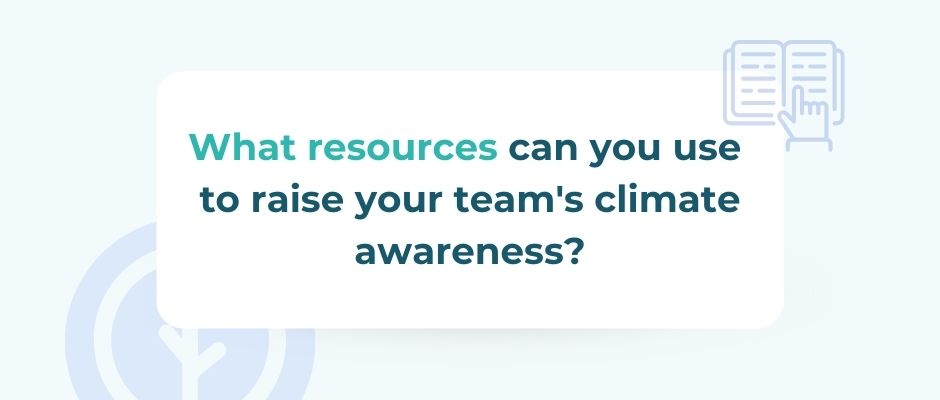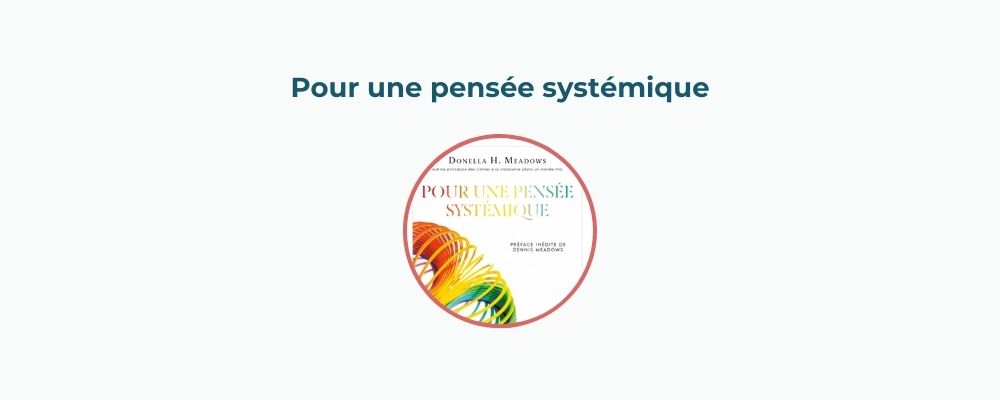9 resources for raising your team’s climate awareness
Reading time: 2 minutes
Reading time: 2 minutes

With climate awareness and action playing an increasingly important role, companies need to find practical ways of mobilising their teams.
After familiarising yourself with the 3 pillars and 5 golden rules of climate awareness, you can find the 9 resources for raising your employees’ awareness of environmental and climate issues.

Duration: 3 hours
Format: face-to-face or online workshop, groups of 4 to 14 people with a facilitator
Description: Using a 42-card deck, La Fresque du Climat takes the form of a collective intelligence workshop, enabling participants to understand the issues and playfully link the causes and effects of climate change.
Price: tailored price
Organise a Fresque du Climat in your organization
Duration: 3 X 1h30 (4h30) spread over 3 days
Format: 3 episodes of 1 hour followed by 30 minutes of conversation. The Week provides the episodes and videos to launch/guide the exchange between participants after viewing the episodes.
Description: through a series of 3 episodes to be watched as a group, The Week is a collective experience that helps us understand climate change, its effects and what we can do in practical terms to tackle it.
Price: for companies – £20 per person
Duration: 3 hours
Format: immersive workshop, organized in France for companies and in France or online for individuals
Description: the 2tonnes workshop takes its name from the maximum annual emissions that a French person would have to emit to meet the temperature targets set under the Paris Agreement. This workshop looks ahead to 2050 and looks at the individual and collective levers that can be used to make the ecological transition a reality.
Price: Tailor-made rates (request a price)
More information about 2tonnes
Duration: 1h00 – 1h30
Format: participatory workshop, organized in Belgium for companies and individuals
Description: sort your garbage, switch to an electric car, stop using plastic straws, insulate your home… There are 1001 actions we hear about when it comes to taking action for the climate. Yet not all of them have the same impact, not all are easy to implement and, above all, not all can be carried out by individual citizens alone. Based on the Neo&Nea online platform, this training course aims to enlighten participants on the individual and, above all, collective actions to be taken, taking into account each person’s situation.
Price: tailored price (request a price)
More information about Neo&Nea

If you don’t know where to start when it comes to climate information, Bon Pote, an independent environmental media organization, offers a wide range of articles and infographics divided into several categories. This provides a framework for learning and understanding global environmental issues.
Discover Bon Pote’s “Parcours thématiques”
When it comes to taking action for the climate, it’s sometimes easy to think that it’s the other players, seen as more powerful than us “ordinary citizens” (the State, companies) who are responsible and who must lead the fight first. With each party blaming the other, these thoughts trap us in what is commonly known as the triangle of inaction.
We all have a role to play in the climate crisis. And if you want to move beyond this triangle of inaction and encourage action within your company, there are several online articles available:

Sismique – Julien Devaureix
This podcast focuses on the challenges of today’s ever-changing world. It deals with the ecological crisis, but also with other upheavals: technological, cultural, economic and geopolitical…. The experts and guests on this podcast describe what tomorrow’s world will look like and how to prepare for it.

Thinking in systems – Donella Meadows
The author of this book introduces us to systems thinking and presents individual and collective solutions to environmental, political, social and economic challenges.
More information on “Thinking in systems” (Donella Meadows)
ECOTAF – ADEME
The involvement of employees is crucial to the transformation of businesses. ADEME’s sociological study ECOTAF (2023) provides a clearer picture of employees’ ecological commitment.
Discover the ECOTAF – ADEME global summary